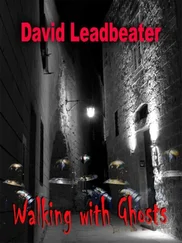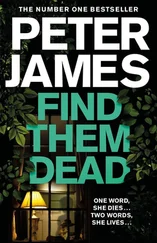On the way home, Armando’s mind pounds out images of his mother on the couch— 7Up sips, Uno indifference, trombone disappointment —and he can’t get his mind to work back far enough to when she was whole.
When his father misses the turn for home, Armando doesn’t ask where they’re headed. His father drives past the Broadmoor and its blooming flowers, past stucco mansions with rock walls, and turns right, heading up into the mountains. They gain altitude and Armando peers out over the valley, all the way across the city to the eastern plains curving toward Kansas and Missouri. Once the pavement turns to dirt his father says, “When Tesla was up here,” but he stops the sentence. His father rolls his window down, inhales, mumbles, “She wanted to see London and Naples, the Thames,” then flips a U-turn. On the way back down, the city rises up to them.
When they walk through the front door, his sister rests on the couch where their mother spent the last months of her life.
Armando retreats to his bedroom and sits on the edge of his bed and stares at a white wall holding up his room. His father comes in and sits down. Armando wants to tell his father that he thinks he’s okay, that he worries about his sister, that he wants Marie near, but he keeps quiet and sits next to his father, who begins to rub his son’s back, first slowly, then faster. Armando listens to his father breathe and feels his father’s hand circling fast, warming his back as they stare at the wall because neither of them knows what to say with the words they have left.
ALSTON MIXES VODKA and cherry Kool-Aid in his water bottle before his high school doubles tennis match.
“Gatorade,” he says to his doubles partner, Dax, then gulps down the red concoction and smirks. No one cares enough to notice Alston’s drinking because Dax and Alston are terrible, even stone-cold sober. They play for the short-skirted girls who never pay them attention and the spring weekday afternoons out of school. Dax, who sticks with actual Gatorade, has a single goal on the court — he takes aim at the other team’s net player and tries to smack the ball as hard as he can into his opponent’s head or nuts. If he gets four or more direct hits before he and Alston are blanked 6–0, 6–0, he considers the damage a victory.
Alston is fast, sinewy, and handsome with his square jaw and narrow blue eyes. He likes to rile Dax up and tell the other team what’s coming—“Dax, the dude at the net says your sister likes it blindfolded with a midget watching,” and “Hey, Freckles, your nuts are about to get fucked up!”
The other team typically responds with mock anger or withdrawn cowardice, never neutrality, but Dax doesn’t mind whatever animosity comes his way. Already six foot six, two hundred pounds in eleventh grade, armed with a cannon forehand, he has a stature that alone deters the most ardent opponents.
Dax’s friendship with Alston is cemented by past loyalty and subtle envy. Alston showcases none of the shyness that Dax battles, so Dax attaches himself to Alston’s moments of outward exhibition and feels the alluring intensity, but not the consequences, of a life without restraint; even now, though Dax has no sister, he plays along with the blindfold taunt and lets the net player decide which body part to defend. The choice may seem easy, but Dax’s coach often sees talented players hunched over, peering through the heads of their meshed nylon racquets, praying that Dax will aim high.
Alston handles his liquor well, but one day he throws up in the middle of his serve.
“Damn,” he says, wiping his mouth. Then: “Love thirty. Second serve.”
“Wait,” the nervous but skilled opponent at the net says. “We’re not playing with that shit on the court. Somebody’s got to clean it up.”
Alston studies the foul puddle of alcohol and Kool-Aid.
“Dax, you want to keep playing?”
“Whatever,” Dax says.
“We’re done,” Alston says.
“Then you guys forfeit.”
“Bitches,” Alston says, already swigging from his water bottle.
Dax and Alston walk over to the top of a grassy hill overlooking the courts and check out the girls’ matches, their attention focused on the hiking hemlines and swaying asses of girls awaiting serves. Their earnest coach leans forward in a lawn chair next to the fence, shouting encouragement. Dax stretches his body out on the grass and stares up at the crisscrossing contrails. Alston sits and wraps his arms around his knees.
“Hey,” Alston says. “Tall one.”
A new girl at their school speaks with the coach, her hands rubbing her hips, then turns and walks toward them. She crests the hill and stands close to the boys.
“They’re talking about you two,” she says. The hill is empty save the two boys and her. Dax shakes his head and rises onto his elbows.
“Bad flu,” Alston says.
“I can smell you,” she says.
The girl lowers herself to the ground. Dax watches her long limbs fold. She clasps her hands and slides them between her thighs. Dax notices a dolphin tattoo above her right ankle, a scar running along the outside of her thigh, disappearing under her shorts.
“You on the team now?” Dax says.
“No racket,” she says.
“Oh.” Then silence, except for the grunts, shoe squeaks, and score recitations of six high school tennis matches.
The match they all ignore features the two best girls from each school. The girl from Rutherford High is the better player, quicker to the ball and with smoother ground strokes, and she produces a high-pitched squeal every time she strikes the ball.
“There need to be more tennis sluts,” Alston says. “All this grunting for nothing.”
“Alston,” Dax says, and nods at the girl.
“Relax, Dax. Your name’s Jean, right?” Alston says.
“Janelle.”
“How come you don’t play?”
“I’m new.”
“So? Aren’t you living with the Conleys?”
“Yeah.”
From down below the coach yells something about backspin and gives a thumbs-up. The boys Dax and Alston forfeited to stand across the way, talking to their coach and pointing to where the three of them lounge. Dax stares at his feet.
“Don’t the Conleys have a bunch of foster kids?” Alston says.
“Jesus, A,” Dax says.
“Yeah,” Janelle says.
“You been in other foster homes?” Alston says.
“It’s not my first.”
“Where you from?”
“Delaware.”
“The whole state?”
“Dover.”
“Why are you in Rutherford if you’re from Delaware?”
“You talk too much,” she says.
“Bitch, please,” Alston says, “people should talk more.” He reaches into his shorts, pulls out a pack of Camels, selects one in the middle, and lights it.
“Here,” he says, holding out the pack to Janelle. “I can tell you smoke.”
She accepts one and Alston reaches across Dax and lights it for her, cupping the flame with his opposite hand although there’s no hint of wind. Dax glances at her face, her thin nose and dark eyes, then her long legs. His body tightens, but when she glances back at him he knows right away she’s not interested. She looks at him as many have, as a slight physical freak — a grown-man body at seventeen — that’s worth a second glance, and that’s all. Dax shakes his size 15 basketball shoes and wonders when he’ll stop growing.
“I’m trying to get this one to start,” Alston says, exhaling a cloud of smoke.
“Not a chance,” Dax says. “I like my lungs without the crap they put on the roads.”
“It’s different tar,” Janelle says. “This is good tar. Helps you breathe.” She smiles for the first time and shows her perfectly white, crooked teeth.
Читать дальше












